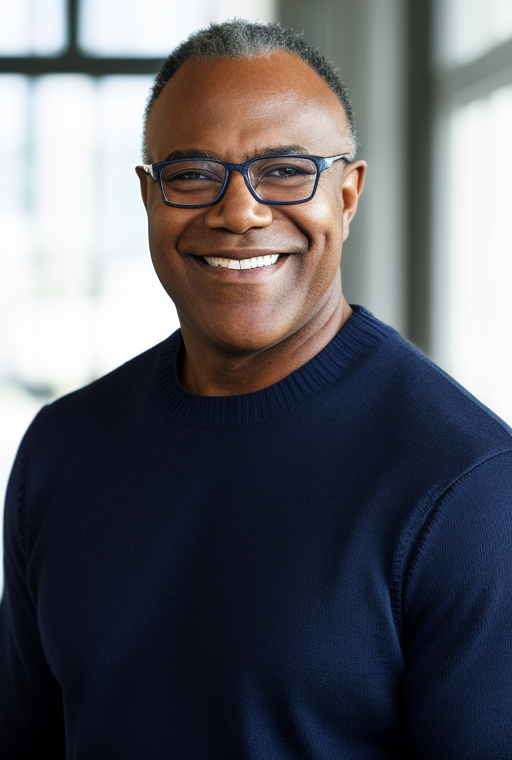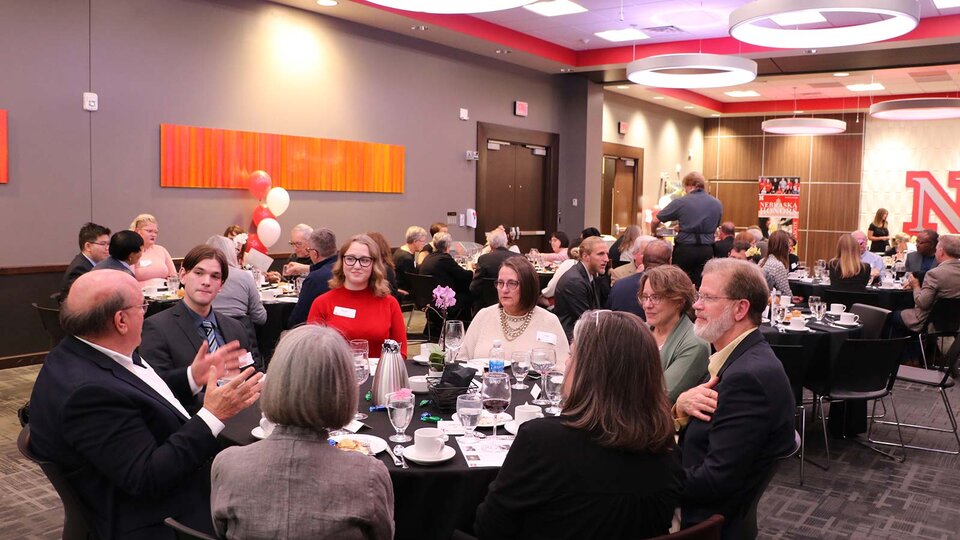We'd Be Honored: A Celebration of the University Honors Program 2025
An evening of conversation and community in support of the University Honors Program
Save the Date
Thursday, October 30, 2025
Cocktails: 5:30 PM
Dinner: 6:00 PM
Purchase Tickets By: October 15, 2025
Questions?
honors@unl.edu
402-472-5425
Location
Nebraska Union Centennial Room (2nd floor)
1400 R St, Lincoln, NE 68588
Accessible Ramp Entrance Located on the West Side of the Union
Parking
Paid parking is available at 17th and R or 14th and P
At its core, Nebraska Honors is about the exploration of ideas through discussion and preparing students to be community-minded learners and leaders. Central to all Honors courses and experiences is time for thoughtful discussion, reflection, and sharing of ideas. The University Honors Program invites community members to come together in support of the work of Nebraska Honors with a dinner fundraiser. Like our Honors classes, the event will encourage thoughtful discussions, inspiring stories, and opportunities to learn what the best and brightest students at the University of Nebraska-Lincoln are planning for the future. The event format encourages all guests to be active participants, to learn, to share, and to build community.
Proceeds from this event will support the Honors Program's various initiatives, including:
Honors Study Abroad to help students develop key global awareness and intercultural competencies
The Honors Intern Foundry (IF) program, which matches top students with purpose-driven internships at nonprofits supporting work vital to Nebraska communities
Innovative and unique course offerings to push student intellectual development, ranging from the Neuroscience of Zombies to Sitcoms and Social Change to Capitalism and Democracy
Leadership development in one of the Honors student organizations: Honors Ambassadors, Honors Peer Mentoring, Honors Program Student Advisory Board, and Honors Afterschool Clubs
Honors Senior Projects that enhance how we understand the world and contributes to future discoveries and creation of new knowledge
Nebraska Honors serves the top 10% of undergraduates at the University. Help us attract and retain top talent in Nebraska by supporting Nebraska Honors!

Keynote Address: Dr. Jamie Williams
Dr. Jamie Williams, parent of a recent Nebraska Honors alum, and Husker Football Hall-of-Famer, will deliver a keynote address. Dr. Williams is a frequent lecturer at universities and C-Suite events. A proven winner, he achieved a Super Bowl ring and 20+ years as an enlightened educator. Success is a recurring theme in business, media, and education. Dr. Williams is skilled in building accomplished teams that have excelled in a variety of disciplines. This includes the creative interdependence necessary to complete the pro football film, Any Given Sunday. He developed the team that launched an NCAA Athletic program from scratch at the Academy of Art University. Dr. Williams later collaborated with technology colleagues to start the Bulgarian Entrepreneurial Center (BEC) in Sofia and Varna. His core ideologies are ethical leadership, design thinking, teamwork, mindfulness, reverse accountability, and strategic flexibility. Williams is Founder, President and CEO of Team81 Inc. — providing IT Services Company for Government Agencies.
Support Tiers
Supporters may purchase individual tickets or a half or full table. Individual tickets are $80. Half Tables are $400, and include 4 guest seats and sponsorship for one student host. Full Tables are $640 and include 6 seats and sponsorship of 2 student hosts.
Individual Ticket Half or Full Table
Note: A receipt will be provided following purchase. If you need an invoice prior to purchase, please let us know and we will send it to you!
Donation
Donations may be made in addition to or in lieu of ticket purchases for this event. All donations support the Dr. Patrice Berger Student Experience Fund, which provides scholarships in support of education abroad, research expenses, and unpaid/underpaid internships.
$50 buys supplies for one Honors Program Student Organization event
$100 pays for one student to participate in our Fall Break Service Trip
$250 provides one Honors Program Student Advisory Board Scholarship
$500 pays for student programs like the signature Honors Pancake Feeds
$750 supports 50 intern hours of service to a non-profit organization
$1500 provides a study abroad scholarship
